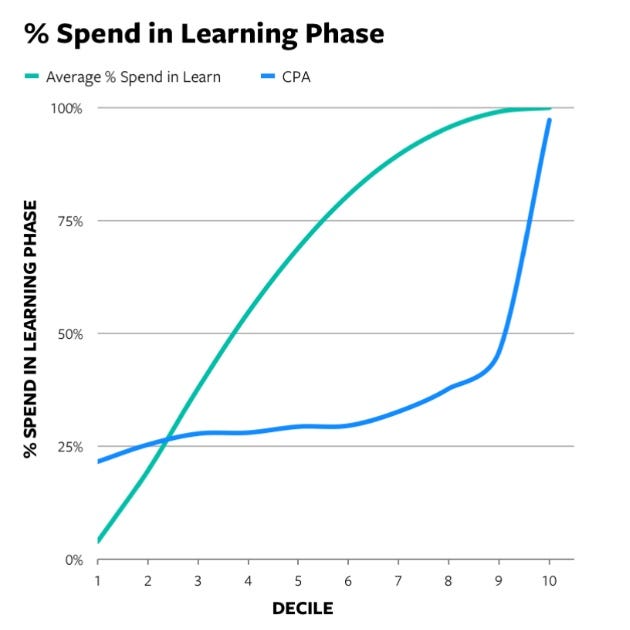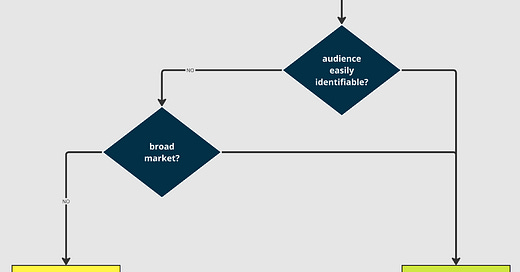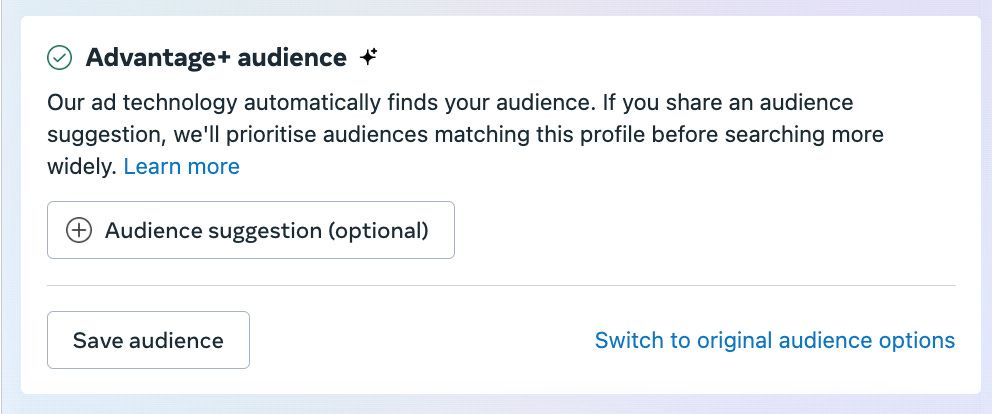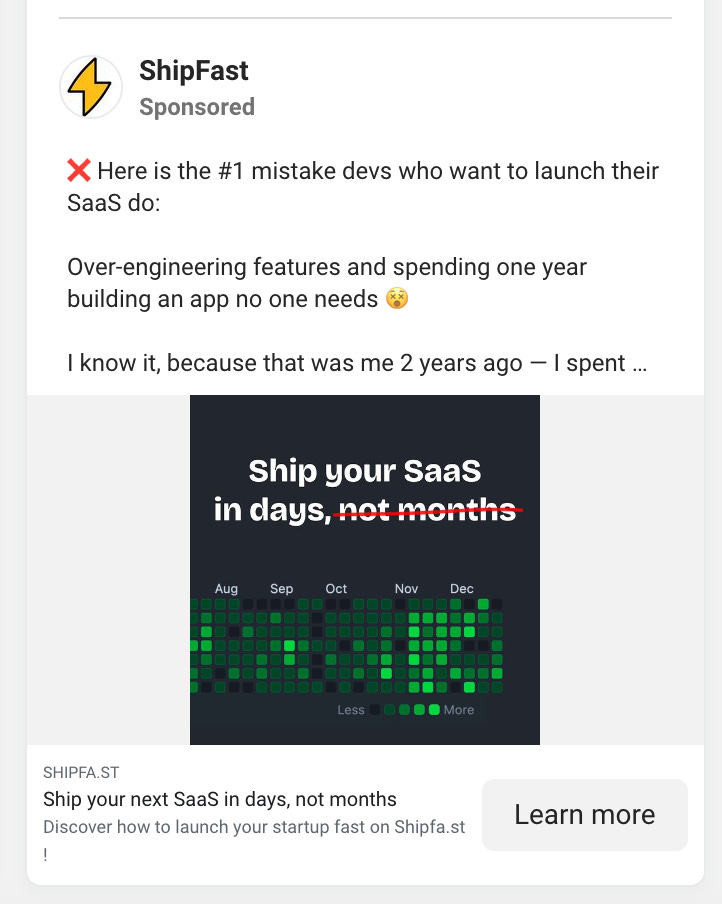The Indiehackers's Guide to Facebook Ads: Q&A with Nico Jeannen
Ben: Nico is a self-taught indie maker from France who went from zero coding knowledge to building and selling profitable apps in just over a year. After managing $1M+ in ad spend as a marketer, he taught himself to code in 2022 and has since created over 20 apps, including MakeLogo.ai which he sold for $65,000.
Nico's experience in both Facebook ads and development gives him a unique perspective on building successful software products. This Q&A stems from knowledge shared in his course, Maker Ads.
How did you get interested in using ads?
I first got interested in ads during my e-commerce days.
I was exploring dropshipping and wanted to learn more about marketing. A friend introduced me to Facebook ads, so I decided to give it a try. I managed to get it working and even made a few sales, though I wasn't making much profit due to product costs - but I got it working.
Later, a client hired me to run their ads, as Facebook advertising was a rare skill back in 2016-2017. That's how I became a freelancer in advertising.
Who should, and shouldn't use paid ads?
This is hard to say because it really depends.
There was a product that made models generated by AI. It's a really cool product, and the target audience is really receptive. For him, it started working immediately. He got results pretty quickly.
But some projects just won't work because either the audience is too niche. For example, Screenshot One. It's like an API to make screenshots. That's going to be hard to make work with Facebook ads because there are just too many specific things.
It's a timing problem. You need a screenshot API when you start a new project that requires it, or if your current provider isn't good enough and you want to switch. Those aren't really the kind of timing Facebook gets because it doesn't really have data points for that.
I would say, in general, if there's a clearly identifiable target like software engineers or project managers, people who can really easily be identified. Or if you're just targeting broad, for example, any woman or any man.
For the budget, it really depends. Some people get sales right away. Others need more testing - they need to test different copy, different wording, etc. So it really depends on the context.
What are some common mistakes make doing ads for the first time?
The biggest mistake is not spending enough or not giving it enough time to properly get results. It works with machine learning and artificial intelligence, so it needs time to understand what kind of people are buying or registering.
Facebook tries to advertise to different audiences and see who's responding, then improves based on that. But if you spend money and keep watching the results, especially without much savings, you get really emotional. I know because I've been there.

You might spend $10, not get a lead, and think, "This is bad. I need to stop." It's tough when you don't have a big budget.
My advice is don't look at the results for a week, then adjust your budget. Don't expect immediate results - it usually takes some trial and error to get it right.
What is your advice on targeting?
Right now, Facebook is really good at targeting. You can use their new options like Advantage+ audience, which have significantly improved. You can even get away with no targeting at all sometimes.
I recommend using these new features because Facebook has become adept at finding the right people. Now, targeting is mainly done through the creative. For example, if your ad says, "Are you a product manager?", Facebook will understand it's for product managers. Those who react will likely be product managers, while others will ignore it.
Compared to before, you don't need as much manual targeting. The platform has become much better at finding the right audience.
How do you make better creatives?
The best practice is to stand out immediately. Your ad's goal isn't to sell your product, but to catch people's attention. It should make them want to learn more, leading them to click through to your landing page.
“focus on grabbing attention rather than selling the product outright”
Don't try to showcase all features in the ad - you don't have enough space. Create something catchy that stands out in people's newsfeeds. Demo videos can work, but ensure people understand what's happening in the first three seconds.
For both static and video creatives, focus on grabbing attention rather than selling the product outright. Just catch people's attention, don't try to sell the product in the ad itself.
How do people get more conversions on their landing pages?
Test different variations. Try different:
Hero sections
Pricing structures
Headlines
Button text
Generally, the bigger the change, the bigger the impact.
It's crucial to optimize your landing page, especially if your ads are performing well. You could get more value for your ad spend with the right landing page version.
I'm actually working on an app for this purpose, as Google Optimize (which was great for this) has been discontinued. The main point is to keep testing and iterating.
[Ben: Nico launched Test It after this interview].
What are the ROI targets people should aim for?
There's no specific target as it really depends on the context. For Typedream, I was fine with a 1:1 ROI because I was selling subscriptions. Even if I didn't make the money back immediately, I knew the churn was low, so I'd recoup the cost after about three months.
It depends on your cash flow, customer lifetime value, how long customers keep paying, and your churn rate. There's no universal rule - it all comes down to your specific business model and how you generate revenue.
Who is doing a great job with social ads that others could take inspiration from?
jenny.ai is doing great with advertising. They have an agency, and I spoke with them recently - really good people. They're excellent at creating effective Facebook ads.
You can use the Facebook Ad Library to check what different brands are doing. I'd also suggest looking at Ship Fast ads, though I'm biased as I made them. But I know they performed well.
Zapier is running decent ads, but their goal is different - more focused on brand awareness than direct response. They're aiming to stay top-of-mind rather than seeking immediate ROI.
How do paid ads fit together with other strategies?
Paid ads are great for getting fast feedback. You can test videos or sponsor blog posts to see if you get clicks, then try to replicate successful approaches organically.
I like to think of distribution channels on two axes: speed and price. SEO, for example, has no price but very low speed. I prefer combining something fast and pricey (like paid ads) with something cheap and slow (like SEO).
This approach gives me immediate results while also building long-term benefits. It's about balancing quick wins with sustained growth.
Where to connect and learn more from you?
My Twitter is the best place to be in touch.
Otherwise:
My blog: https://jeannen.com/
YouTube channel: https://www.youtube.com/@Jeannen
And there is my new app, TestIt.so for AB testing!








